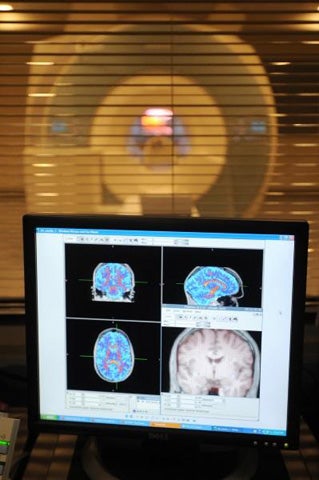New partnership brings powerful neuroimaging scanner to campus
The University of Colorado Boulder has partnered with the Mind Research Network in Albuquerque to bring to campus a state-of-the-art magnetic resonance scanner that will significantly enhance the neuroimaging capabilities on campus.
The partnership, called the Intermountain Neuroimaging Consortium, is designed to bring researchers from Boulder, the Front Range and New Mexico together to cooperatively use the new system to investigate how the brain works and how it influences our behavior.
The 25,000-pound, $3 million Siemens 3T Trio Magnetic Resonance Imaging System will be the most powerful imaging system on campus and will be at CU-Boulder’s Center for Innovation and Creativity, which also houses the Janus supercomputer, one of the 52 fastest computers in the world.
Having these two tools in the same location will greatly help researchers analyze massive amounts of brain imaging data, according to Marie Banich, executive director of the Intermountain Neuroimaging Consortium and director of CU-Boulder’s Institute of Cognitive Science. Along with software being developed at CU-Boulder, the Janus Supercomputer will allow researchers to combine multiple measures of how the brain functions with measures of brain anatomy to see which best predict aspects of people’s behavior, such as whether they are sensitive to pain.
“The implications of the work to be performed here at CU-Boulder are far-reaching,” Banich said. “These range from revealing the causes of mental illness and addiction, which in turn can lead to the creation of new avenues for treatments, to understanding factors that influence how easy or difficult it is to pay attention.”
Researchers from CU-Boulder’s Institute for Behavioral Genetics will use the scanner to determine what aspects of brain function are more strongly influenced by genetic factors and which are more highly influenced by the environment. Developmental psychologists will examine how the brain changes during childhood and adolescence, while others will examine the effects on the brain of training and interventions.
Before the imaging system’s delivery to campus, CU-Boulder researchers had to travel to the Anschutz Medical Campus to conduct brain scans, while others scanned their subjects on the East and West coasts.


